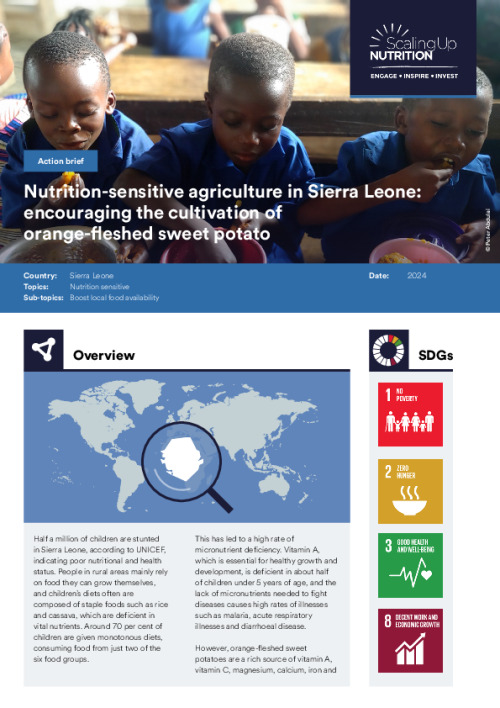Nutrition-sensitive agriculture in Sierra Leone: encouraging the cultivation of orange-fleshed sweet potato
Half a million of children are stunted in Sierra Leone, according to UNICEF, indicating poor nutritional and health status. People in rural areas mainly rely on food they can grow themselves, and children’s diets often are composed of staple foods such as rice and cassava, which are deficient in vital nutrients. Around 70 per cent of children are given monotonous diets, consuming food from just two of the six food groups.
This has led to a high rate of micronutrient deficiency. Vitamin A, which is essential for healthy growth and development, is deficient in about half of children under 5 years of age, and the lack of micronutrients needed to fight diseases causes high rates of illnesses such as malaria, acute respiratory illnesses and diarrhoeal disease.
However, orange-fleshed sweet potatoes are a rich source of vitamin A, vitamin C, magnesium, calcium, iron and phosphorus, and they also provide fibre, carbohydrates and potassium. The cultivation of these plants is encouraged in Sierra Leone, as they are an essential source of micronutrients (particularly for children) and can help farmers diversify their production and thus improve their livelihoods.
Read this action brief from Sierra Leone to learn more.
